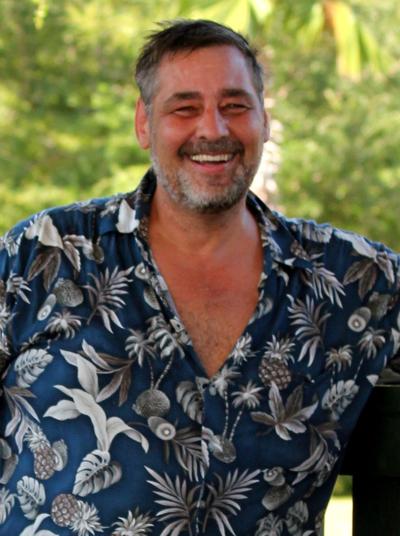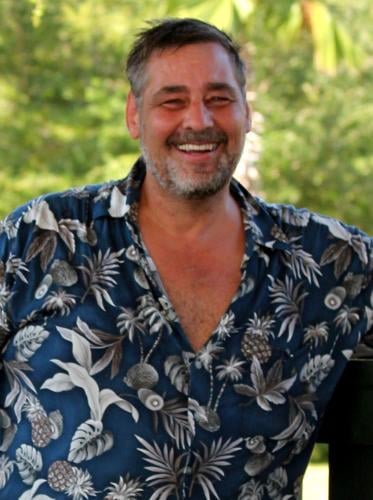While writing a travel blog a few years ago, I spent a week with a couple thousand hippies in the Ocala National Forest. Among them I met several older “hippies” that had been living this lifestyle for decades. This group didn’t allow alcohol or “street drugs” at the gatherings and many abstained from the plentiful marijuana and various mushroom concoctions that floated around. They all gave variations of the same basic answer. As to using drugs in general, they felt that the drugs always took more than they gave. And as to alcohol in specific, the consensus was that alcohol is the “hardest drug” when it comes to wreckage in people’s lives and collateral damage to everyone close to the one abusing it.
A man named Walter has an interesting story that touches on a number of issues surrounding alcohol. One of these is the question of how much of the tendency to become addicted to substances is inherited and how much of it stems from social issues. Walter’s father and his biological brother married biological sisters, with each family having five children. Children born in this circumstance are referred to as “double cousins.” Of the five children in Walter’s family, four have had addiction issues while none of the five double cousins had any. I will let Walter tell you his story in his own words:
“My father served in the European Theater during the tail end of World War II and for the first few years of Allied Occupation. Born in ’62, my earliest memories are of my Dad beating my oldest brother with a guitar that someone gave to him. Dad considered himself pretty religious and was opposed to the rock music that was becoming popular. Dad beat him so bad with the guitar that he required hospitalization and I remember being told that we had better not breathe a word to any of the doctors or nurses the truth about what had happened.
Dad believed strongly in the “spare the whip, spoil the child” mentality that his religion taught him. The abuse was so bad that brother ran away from home at 12 years old and didn’t return until he was enlisting in the military during the Vietnam War. As a child people commented that my hands always had a little shake to them. I realize today that this was anxiety – I was never sure which Dad was going to come home. He was either enraged over something or he was happy and wanting everyone to sing his praises – not much in between. It was only years later that I realized that Dad kept liquor downstairs in his office and spent many a night hitting the bottle. I have since forgiven him – he had his own demons to fight.
I scored top in my state in all of the standardized tests they gave during elementary and middle school. I was moved ahead of my grade and many people told me I was going to make great contributions to society. Partly stemming from the chaos at home I secretly felt that I was inadequate, plagued with feelings of insecurity. In school the teachers made exceptions for me and I got the message that rules were something that applied to everyone else. But I was always comparing my insides – which were quite chaotic – with everyone else’s outsides, which looked to me like they had it altogether. I spent long hours watching up our street, hoping my big brother would return and rescue me.
Neither mother nor father’s families drank alcohol and I don’t remember it being discussed. But at 14 when I drank for the first time, all feelings of inadequacy, guilt and fear disappeared. I had finally discovered how to face life successfully, the only problem being that most times I drank too much. But I figured that since I was smart enough to master any school subjects, figuring this out wouldn’t be a problem. For the next 30 years I tried to control my drinking, but when I controlled it I didn’t enjoy it, and when I enjoyed it I couldn’t control it.
I graduated and left home early, eventually heading to college determined to “succeed.” I had some success in the classes I enjoyed, but as my drinking escalated my self-discipline waned. A marriage to a local barmaid lasted a few months, after which I decided to move to another state and start over. I met with financial success, met a woman who drank like me and we decided that getting together and having children was a good idea. I earned good money, but as life circumstances happened my drinking continued to escalate. Four children later we end up divorcing.
I had never been convicted of a DUI, so I figured I wasn’t an alcoholic. But when I found out my daughter had cancer I went on a full-fledged spree – acquiring four DUI’s in two week’s time. She recovered from her cancer, but I spiraled downward for another six years, losing all my possessions several times.
I moved to South Carolina rather than facing the consequences of the DUI’s. I rented a place on Atlantic on Isle of Palms and started another business from my house. Now it takes a half-gallon of vodka a day to quiet the negative emotions, which I am mixing with a box of wine so that it isn’t so hard on my digestive system. Then comes that day that alcohol no longer gives any emotional relief – I am only drinking to avoid withdrawals. I start having epileptic-type seizures if I go more than a day without drinking.
In 2006, my father committed suicide at age 80, which meant I had to go back to the family home. Members of the family tried to talk me into going to a treatment center, which I refused. But after returning to Isle of Palms I realized what bad shape I was in and went into a treatment center for eight months in August 2006. I have not had a drink since.
My story is not special at all – 30 years of increased drinking and the consequences that come with it makes me a garden-variety alcoholic. But today I see how few people make it out of that mess. I have been active in recovery for over 12 years now and I see how many die or get locked up as a result of addiction. I have no idea what clicked inside of me that allowed me to embrace a program that showed me what actions to take to develop a new way of life that precluded alcohol and drugs. But I sure am grateful that others who forged the path showed me the way.
To this day I dare not take one drink or other addictive substance. I can tell you that I am going to have one drink or one pill and I will be so sincere that I will pass a lie detector test. But once that substance is in my body, I am no longer the man who passed that test. Once I take a drink, the drink takes a drink and then the drink takes me. And that is as true of uppers, downers, pot, caffeine, sugar and nicotine as it is for alcohol.
In the last 12 years I have done my best to mend fences with those I hurt and although most of those relationships have healed some wrongs we can never set right. Today I spend the majority of my time quietly trying to help those that sincerely seek escape from addiction. As long as I continue to stay close to the intuitive guidance I get when I pray and meditate and work to help others the obsession to drink is lifted from me. But if I allow myself any bouts of selfishness or self-pity the craving roars back. Luckily the lifestyle brings great joy so I don’t consider it as a burden or some type of undesirable penance.
My father and his brother shunned each other and it was not until recently that I have started developing a relationship with my double cousins. None of them have contended with addiction, nor do they seem to relate to having feelings so negative that one would seek to anesthetize them with a drug.
If you take a message from this story, please let it be this: Make the children in your life feel like they belong on this Earth and that they are worthwhile just as they are. The window available to teach this to the young closes much more quickly than we would like to believe.
In our next article we are interviewing a couple of local scientists that are trying to unravel the physical mysteries of addiction. One recently was recognized by South Carolina for discoveries she has made, so it should be interesting. Until then, be gentle with yourself.
To read more about the hippy movement, visit: captureamericajournal.blogspot.com/2015/02/ocala-national-forest-rainbow-gathering.html.




